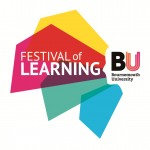with the deadline fast approaching for proposals to be submitted, here are a further couple of event ideas which may be food for thought for the Festival of Learning.
A ‘Who do you think you are’ themed event could use the concept of people’s ancestors and talk about how family history can have an impact on the individual choices we make today. This is often of great interest to many of us and can create a real debate in the room. This was further proven to be a successful topic at Engage 2014 in which a talk focused on how people should ‘remember their ancestors roots and way of living’ and stick to this in their everyday life.
An event idea which is of a completely different angle is that of using the popular game of ‘Top trumps’ and embedding your research around this game. Gamification is a quickly growing concept in the business world and is gaining recognition as one of the most talked about words in recent years. This is the way in which learning can be gained from games with your chosen content. For example, you could use as an example different bacterias in a top trumps style. This would involve the younger generation pitting against one another to see who had the ‘deadliest bacteria’.
For more information on the Festival of Learning 2015 please email Naomi Kay and she will be happy to help with event proposals and general inquiries.
 Festival of Learning 2017 – support for developing your event idea
Festival of Learning 2017 – support for developing your event idea










 New CMWH paper on maternity care
New CMWH paper on maternity care From Sustainable Research to Sustainable Research Lives: Reflections from the SPROUT Network Event
From Sustainable Research to Sustainable Research Lives: Reflections from the SPROUT Network Event REF Code of Practice consultation is open!
REF Code of Practice consultation is open! ECR Funding Open Call: Research Culture & Community Grant – Apply now
ECR Funding Open Call: Research Culture & Community Grant – Apply now ECR Funding Open Call: Research Culture & Community Grant – Application Deadline Friday 12 December
ECR Funding Open Call: Research Culture & Community Grant – Application Deadline Friday 12 December MSCA Postdoctoral Fellowships 2025 Call
MSCA Postdoctoral Fellowships 2025 Call ERC Advanced Grant 2025 Webinar
ERC Advanced Grant 2025 Webinar Update on UKRO services
Update on UKRO services European research project exploring use of ‘virtual twins’ to better manage metabolic associated fatty liver disease
European research project exploring use of ‘virtual twins’ to better manage metabolic associated fatty liver disease